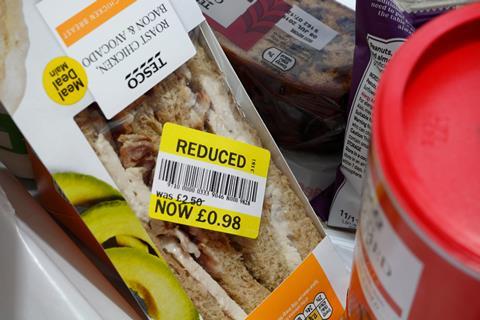Natalie Williams on how your weekly shop could look different if you applied the Old Testament principle of gleaning

In the Old Testament, care for those who were struggling economically was central to how the people of God were to flourish and be set apart from other people groups.
One law concerned gleaning. As crops were gathered up, some would fall by the wayside. Farmers might be tempted to go back and pick up as much as possible, but God said not to (Leviticus 19:9-10). Instead, anything that wasn’t gathered up the first time was to be left for widows, orphans, foreigners and those in poverty.
I am not a farmer, but there is still an application for us today. It might be as simple as not going to the reduced aisle in a supermarket if you can afford regular-priced food. For bargain-hunters like me, that might feel out of character, but leaving the cheaper food for those on a budget is one way we can practise modern-day gleaning.
Profiting from poverty
The people of God were also told not to profit from selling food to the poor (Leviticus 25:37). Note: they can make a living, but not a profit. In the current cost of living crisis, it would make an extraordinary difference if supermarkets adopted God’s ways. One million children face destitution in the UK, yet many supermarkets still post profits in the millions (or even billions) each year.
Leviticus 19 and 25 also contained other commands: to pay wages on time (19:13), not charge interest on loans (25:37) and to treat foreigners as natives (19:33-34). Perhaps most controversially, Deuteronomy 26:12 says tithes should not just be given to priests but also to those in poverty.
It would make an extraordinary difference if supermarkets adopted God’s ways
The charity I lead is called Jubilee+. Our name comes from the ‘Year of Jubilee’ in Leviticus 25. Every 50 years, debts were to be written off, slaves freed and land returned to its original owners. The ‘+’ sign signifies that we’re now living under the new, better covenant.
Similar principles were put in place by God for the Sabbath year, which meant mercy and hope were woven into the fabric of society. Anyone who fell into hardship – whether through circumstances or their own bad decisions – had the hope of only ever being a maximum of seven years away from a fresh start.
Levelling the playing field
God said that if his people obeyed these commands, there need be not a single person in poverty in their midst (Deuteronomy 15:4). Centuries later, after Jesus had died, risen and ascended, the early Church achieved what the Israelites couldn’t. Acts 4:34 says there was no one in need in the community of God.
Today, there are more than 14 million people in poverty in the UK. While politicians, statutory agencies and charities can and do work to alleviate need, there is a vital role for the Church too. First, to eradicate poverty in our midst, and then to see it overflow beyond the church walls into our communities.
Wherever people of God are, poverty should be receding because, as Jesus said, “the kingdom of God is at hand” (Mark 1:15, ESV).






































4 Readers' comments